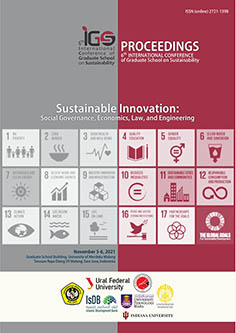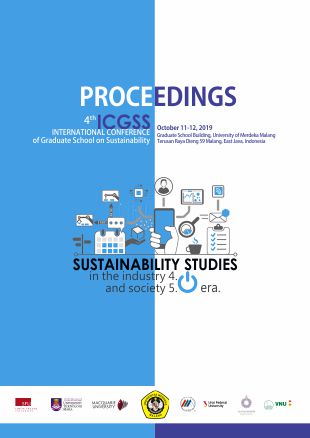Sustainable practices and green economy policies can increase the resilience of an economy to shocks and crises. Countries can reduce their dependence on limited and volatile resources by promoting renewable energy sources, resource efficiency, and environmental preservation, making them less vulnerable to sudden price fluctuations and supply disruptions that can trigger a recession. Global Cooperation in Climate change and environmental challenges are global issues that require international cooperation. Embracing a green economy encourages collaboration between countries to tackle common challenges. Countries can pool resources, share best practices, and collectively strengthen their economies against a global economic recession by working together. Job Creation and Investment in sustainable industries can generate significant job creation. For example, a transition to a green economy can generate large numbers of jobs in sectors such as green marketing, management, and products, providing job opportunities in times of economic contraction.
-
9th INTERNATIONAL CONFERENCE ON SUSTAINABILITY (ICoS9)
November 9, 2024 – November 10, 2024 The world has undergone significant transformations across various sectors in recent decades due to rapid technological advancements. The concept of Society 5.0, first introduced by the Japanese government, envisions a society that integrates advanced technologies such as artificial intelligence (AI), the Internet of Things (IoT), big data, and robotics into all aspects of life. Society 5.0 not only focuses on technological efficiency and innovation but also on creating high-added value for society by improving quality of life, promoting social inclusivity, and ensuring environmental sustainability. However, amidst this transformation, sustainability challenges have become increasingly urgent. Climate change, environmental degradation, social inequality, legal aspects, and economic disparity are critical issues that must be addressed promptly. Therefore, integrating sustainability principles into the era of Society 5.0 is crucial.When wisely utilized, advanced technologies can be powerful tools to achieve Sustainable Development Goals (SDGs).
Against this backdrop, the international conference "Sustainable Development in the Era of Society 5.0" is organized to discuss, examine, and formulate strategies and innovative solutions to support sustainability in various aspects of life. This conference aims to be a platform that brings together stakeholders from multiple fields, including academics, researchers, industry practitioners, policymakers, and civil society, to share knowledge, experiences, and best practices.
IMPORTANT DATES
- Abstract Submission Deadline: Extended from September 25 to October 20.
- Acceptance Notification: Now from September 30 to October 21.
- Regular Payment Period: Extended from September 1 - September 25 to September 1 - October 25 (Don’t miss out on our discount for regular payments!).
- Full Paper Submission Deadline: Extended from October 25 to October 30.
Conference Date: November 9.
DISCOUNTED REGISTRATION FEES:
- International Presenter: $50.00
- Participant: IDR 150,000 → Now IDR 100,000
- Local Presenter (outside University of Merdeka Malang): IDR 700,000 → Now IDR 500,000
- Local Presenter (from University of Merdeka Malang): IDR 500,000 → Now IDR 400,000
- Post-Graduate Student: IDR 300,000
PAYMENT
Name of Beneficiary | : | DIREKTUR PROGRAM PASCASARJANA |
Account number | : | 0042-5521-01 |
Bank name | : | BANK JATIM |
Swift code | : | BJTMIDJA |
Bank address | : | UNIVERSITAS MERDEKA MALANG JL TERUSAN RAYA DIENG 58-59 MALANG INDONESIA |
Confirm your payment to : Nurul Aini (0812-3058-1598)
BENEFITS and FACILITIES:
- Proceedings: Publication of accepted papers in the conference proceedings.
- Certificates: Certificates of participation for all attendees.
- Journal Publication: Selected papers published in national journals indexed in SINTA 2, 3, and 4.
-
8th INTERNATIONAL CONFERENCE ON SUSTAINABILITY (ICoS8)

Sustainable practices and green economy policies can increase the resilience of an economy to shocks and crises. Countries can reduce their dependence on limited and volatile resources by promoting renewable energy sources, resource efficiency, and environmental preservation, making them less vulnerable to sudden price fluctuations and supply disruptions that can trigger a recession. Global Cooperation in Climate change and environmental challenges are global issues that require international cooperation. Embracing a green economy encourages collaboration between countries to tackle common challenges. Countries can pool resources, share best practices, and collectively strengthen their economies against a global economic recession by working together. Job Creation and Investment in sustainable industries can generate significant job creation. For example, a transition to a green economy can generate large numbers of jobs in sectors such as green marketing, management, and products, providing job opportunities in times of economic contraction.

1.png)
KEYNOTE SPEAKER

| Prof. Drs. H. Muhammad Tito Karnavian, BA., MA., Ph. D Minister of Home Affairs of Indonesia Prof. Drs. H. Muhammad Tito Karnavian, BA., MA., Ph. D has a diverse educational background, starting with his training at the Akademi Kepolisian Semarang, Indonesia. He pursued a Master of Arts in Police Studies from the University of Exeter, UK, and furthered his education at the Perguruan Tinggi Ilmu Kepolisian (PTIK) in Jakarta. He also completed a Bachelor of Arts in Strategic Studies at Massey University, New Zealand. He obtained a Ph.D. in Strategic Studies, focusing on terrorism and Islamist radicalization, from the S. Rajaratnam School of International Studies, Singapore. His varied education equips him with expertise in policing, strategic studies, and counterterrorism. His publications cover a wide range of topics related to conflicts, terrorism, policing, and state architecture. His works include "Indonesian Top Secret: Membongkar Konflik Poso" (Breaking Down Poso Conflict), published by Gramedia in 2008, which examines the Poso conflict in Indonesia. He also contributed a chapter titled "Regional Fraternity: Collaboration between Violent Groups in Indonesia and the Philippines" to the book "Terrorism in South and Southeast Asia in the Coming Decade" published by ISEAS in Singapore in 2009. In 2013, he published "Bhayangkara di Bumi Cenderawasih" (The Guardian in The Land of Cendrawasih Bird) as part of the ISPI Strategic Series in Jakarta. His publication titled "Explaining Islamist Insurgencies" was released by Imperial College in London in 2014. In 2017, he published "Polri Dalam Arsitektur Negara" (Police in State Architecture) in collaboration with LIPI in Jakarta, and "Democratic Policing" through Gramedia in Jakarta. These publications demonstrate his expertise in analyzing conflicts, terrorism, policing, and the role of police in state governance. His works contribute to academic and public understanding of these complex subjects. He began his career in the Indonesian National Police in 1987. He became the Chief of Indonesian National Police in 2016 and Minister of Home Affairs of Indonesia in 2019. He has been invited as Guest speaker in many International Forum all around the world since 2005.
|
INVITED SPEAKER

| Kazi Sohaq, Ph.D Ural Federal University, Russia Associate Professor Dr. Kazi Sohag has PhD in Environmental Economics. He is based in the Graduate School of Economics and Management at Ural Federal University, Russia. His research interest is in the Environment Economics, Energy Economics, Development Economics, Financial Economics, Good Governance, Income Inequality, Remittance, Labour Market and Economic Growth. He has more than 9 years’ experience in energy, political, development and financial economics. He authored 2 books on the Finance growth and the Food Security Program. He has published in A*and A ranked journals (SSCI, SCI, Scopus, and ABDC). He also has three years’ experience as a reviewer for various ranked journals including the reputable journals published by Elsevier, Springer, Taylor and Francis, Emerald Insight, Wiley, Sage and MDPI. He was awarded with a number of International Research Grants from Malaysia, Eastern European, and Middle East Countries. He has earned a Training of Trainer Certificate on Advanced Econometrics Techniques. He also has delivered keynote speeches, public lectures and panel discussion in Russia, Indonesia, and Turkey. |

| Dr. Farhana Begum, Mphil, Ph.D University of Rajshahi, Bangladesh Dr. Farhana Begum holds several active positions, including a Postdoctoral Research Scholar at the University of Rajshahi, IsDB, and an Assistant Professor in Accounting at the Ministry of Education in Bangladesh. She is also involved in various roles, such as being a Collaborative Research Project Team Leader for the Asia-Pacific Management Accounting Association and a Director of the APMAA Board. Dr. Begum has received international recognition, including the Womani 2022 International Award, for her work in Islamic Business and Finance. She has secured research grants from prestigious institutions and has presented her research at international conferences. Her extensive publication record spans topics such as sustainability, health planning, corporate ownership, and population health. She has published some of her articles in Q1 Scopus Indexed Journals. Overall, Dr. Farhana Begum's contributions as a researcher and educator have made a significant impact in the field of accounting.. |

| Dr. Prihat Assih, SE., M.Si., Ak., CSRS University of Merdeka Malang, Indonesia Dr. Prihat Assih, SE., M.Si., Ak., CSRS, is the Vice Rector for Human Resources at Universitas Merdeka Malang. She earned her doctoral degree in Accounting in 2004 from Universitas Gajah Mada. She obtained her Master of Science in Accounting in 1998 from Universitas Gajah Mada. Her bachelor's degree in Economics is from Universitas Brawijaya in 1984. Throughout her career, she has written more than 70 articles on Accounting, focusing on the topics of Risk Audit in Accounting, Corporate Governance, and CSR. |

| Dr. Kanitsom Terdpaopong, Ph.D Rangsit University, Thailand Assistant Prof. Kanitsorn Terdpaopong, Ph.D., served as International Program Director at Rangsit University, Thailand. She has received research grants from several governmental agencies; for the example the Thai Research Fund, The Office of Higher Education Commission and Office of the Welfare Promotion Commission for Teachers and Education Personnel, as well as from Rangsit Research Institute, Thailand. She was selected to receive a newton fund award for researcher and received training from Newton Fund and British Council, Thailand. In 2018 she was awarded grant from Australian-ASEAN Council (AAC), Department of Foreign Affairs and Trade (DFAT). In addition, she received an Australian Endeavour Executive Fellowship from Australian Government, Department of Education and Training; and awarded Taiwan Fellowship from Ministry of Foreign Affairs of the Republic of China in 2018. |
CALL FOR ABSTRACT & PAPER ICoS 2023:
We invite authors to submit the best articles in the fields of Humaniora, Economic (Green Economics, Digital Economic Transformations , Green Accounting, Green Management and Bussiness, Young Entrepreneurship) for publication with the following schedule:
Start of 3rd regular Registration: August 31, 2023
Abstract submission deadline: September 01, 2023
Full paper submission deadline: September 14, 2023
Conference day: September 15, 2023

| Sub-themes 1. Sustainability of Green Economics for Anticipating Global Recession 2. Economic Disruption in the 4.0 Industrial Revolution Era 3. Digital Economic Transformations Post Covid-19 Pandemic 4. Green Accounting 5. Green Management and Bussiness 6. Young Entrepreneurship and Creative Economic Important Date August 31, 2023 | Start of 3rd regular Registration | September 01, 2023 | Abstract Submission Deadline | September 14, 2023 | Full paper submission deadline
| September 15, 2023 | Conference day | |
| | |
|
REVIEW PROCEDURES
ICoS 2023 uses a double-blind review, which means that both the reviewer’s and author’s identities are concealed throughout the review process. The review process is expected to take one (1) to two (2) weeks. The following are the four main steps of the review process.
The completed manuscript uploaded by the author(s) to the ICoS website is then assigned by the Section Editor to see the editorial process.The editor will invite reviewers to assess and judge the submitted manuscript properly.The result of the review will be communicated to the editor for onward transmission to the author(s).If required, the author(s) will revise the manuscript in light of the reviewers’ comments and suggestions and resubmit the manuscript. When the manuscript is finally accepted, the editor will schedule the publication and inform the author(s).
REVIEW POINT
ICOS is committed to publishing innovative and sustainable research results with an open-access peer-reviewed process that mediates the dissemination of academicians, researchers, and practitioners in engineering, science, and technology. ICoS uses a double-blind review, which means that both the reviewer’s and author’s identities are concealed throughout the review process. The review process is expected to take one (1) to two (2) weeks. The scopes of ICoS are Sustainability of Green Economics, Economic Disruption, Digital Economic Transformations , Green Accounting, Green Management and Bussiness, Young Entrepreneurship and Creative Economic
REVIEWERS
ICOS has recruited reputation and professional reviewers from universities and institutions worldwide, such as Russia, Thailand, Bangladesh, etc. ICOS is committed to ensuring the review process is done without conflict of interest and to ensuring the scientific process’s rigorous standards by participating in the peer-review system. Reviewers uphold the integrity of the manuscript by identifying invalid research and helping to help prevent ethical breaches by identifying plagiarism, research fraud and other problems by dint of their familiarity with the subject area.
Publication Ethics
Duties of Authors
- Reporting Standards: Authors of reports of original research should present an accurate account of the work performed as well as an objective discussion of its significance. Underlying data should be represented accurately in the paper. A paper should contain sufficient detail and references to permit others to replicate the work. Fraudulent or knowingly inaccurate statements constitute unethical behaviour and are unacceptable.
- Originality and Plagiarism: The authors should ensure that they have written entirely original works, and if the authors have used the work and/or words of others that this has been appropriately cited or quoted.
- Multiple, Redundant or Concurrent Publication: An author should not, in general, publish manuscripts describing essentially the same research in more than one journal or primary publication. Submitting the same manuscript to more than one journal concurrently constitutes unethical publishing behaviour and is unacceptable.
- Acknowledgement of Sources: Proper acknowledgement of the work of others must always be given. Authors should cite publications that have been influential in determining the nature of the reported work.
- Authorship of the Paper: Authorship should be limited to those who have made a significant contribution to the conception, design, execution, or interpretation of the reported study. All those who have made significant contributions should be listed as co-authors. Where there are others who have participated in certain substantive aspects of the research project, they should be acknowledged or listed as contributors. The corresponding author should ensure that all appropriate co-authors and no inappropriate co-authors are included on the paper and that all co-authors have seen and approved the final version of the paper and have agreed to its submission for publication
- Disclosure and Conflicts of Interest: All authors should disclose in their manuscript any financial or another substantive conflict of interest that might be construed to influence the results or interpretation of their manuscript. All sources of financial support for the project should be disclosed.
- Fundamental errors in published works: When an author discovers a significant error or inaccuracy in his/her own published work, it is the author’s obligation to promptly notify the journal editor or publisher and cooperate with the editor to retract or correct the paper.
- Hazards and Human or Animal Subjects: If the work involves chemicals, procedures or equipment that have any unusual hazards inherent in their use, the author must clearly identify these in the manuscript.
Duties of Editors
- Fair Play: An editor at any time evaluate manuscripts for their intellectual content without regard to race, gender, sexual orientation, religious belief, ethnic origin, citizenship, or political philosophy of the authors.
- Confidentiality: The editor and any editorial staff must not disclose any information about a submitted manuscript to anyone other than the corresponding author, reviewers, potential reviewers, other editorial advisers, and the publisher, as appropriate.
- Disclosure and Conflicts of Interest: Unpublished materials disclosed in a submitted manuscript must not be used in an editor's own research without the express written consent of the author.
- Publication Decisions: The editor board journal is responsible for deciding which of the articles submitted to the journal should be published. The validation of the work in question and its importance to researchers and readers must always drive such decisions. The editors may be guided by the policies of the journal's editorial board and constrained by such legal requirements as shall then be in force regarding libel, copyright infringement and plagiarism. The editors may confer with other editors or reviewers in making this decision.
- Review of Manuscripts: The editor must ensure that each manuscript is initially evaluated by the editor for originality. The editor should organise and use peer review fairly and wisely. Editors should explain their peer review processes in the information for authors and also indicate which parts of the journal are peer reviewed. The editor should use appropriate peer reviewers for papers that are considered for publication by selecting people with sufficient expertise and avoiding those with conflicts of interest.
Duties of Reviewers
- Contribution to Editorial Decisions: Peer review assists the editor in making editorial decisions and through the editorial communications with the author may also assist the author in improving the paper.
- Promptness: Any selected referee who feels unqualified to review the research reported in a manuscript or knows that its prompt review will be impossible should notify the editor and excuse himself from the review process
- Standards of Objectivity: Reviews should be conducted objectively. Personal criticism of the author is inappropriate. Referees should express their views clearly with supporting arguments.
- Confidentiality: Any manuscripts received for review must be treated as confidential documents. They must not be shown to or discussed with others except as authorised by the editor.
- Disclosure and Conflict of Interest: Privileged information or ideas obtained through peer review must be kept confidential and not used for personal advantage. Reviewers should not consider manuscripts in which they have conflicts of interest resulting from competitive, collaborative, or other relationships or connections with any of the authors, companies, or institutions connected to the papers.
- Acknowledgement of Sources: Reviewers should identify relevant published work that has not been cited by the authors. Any statement that an observation, derivation, or argument had been previously reported should be accompanied by the relevant citation. A reviewer should also call to the editor's attention any substantial similarity or overlap between the manuscript under consideration and any other published paper of which they have personal knowledge.
-
7th INTERNATIONAL CONFERENCE OF GRADUATE SCHOOL ON SUSTAINABILITY (ICGSS) 2022
November 4, 2022 – November 5, 2022 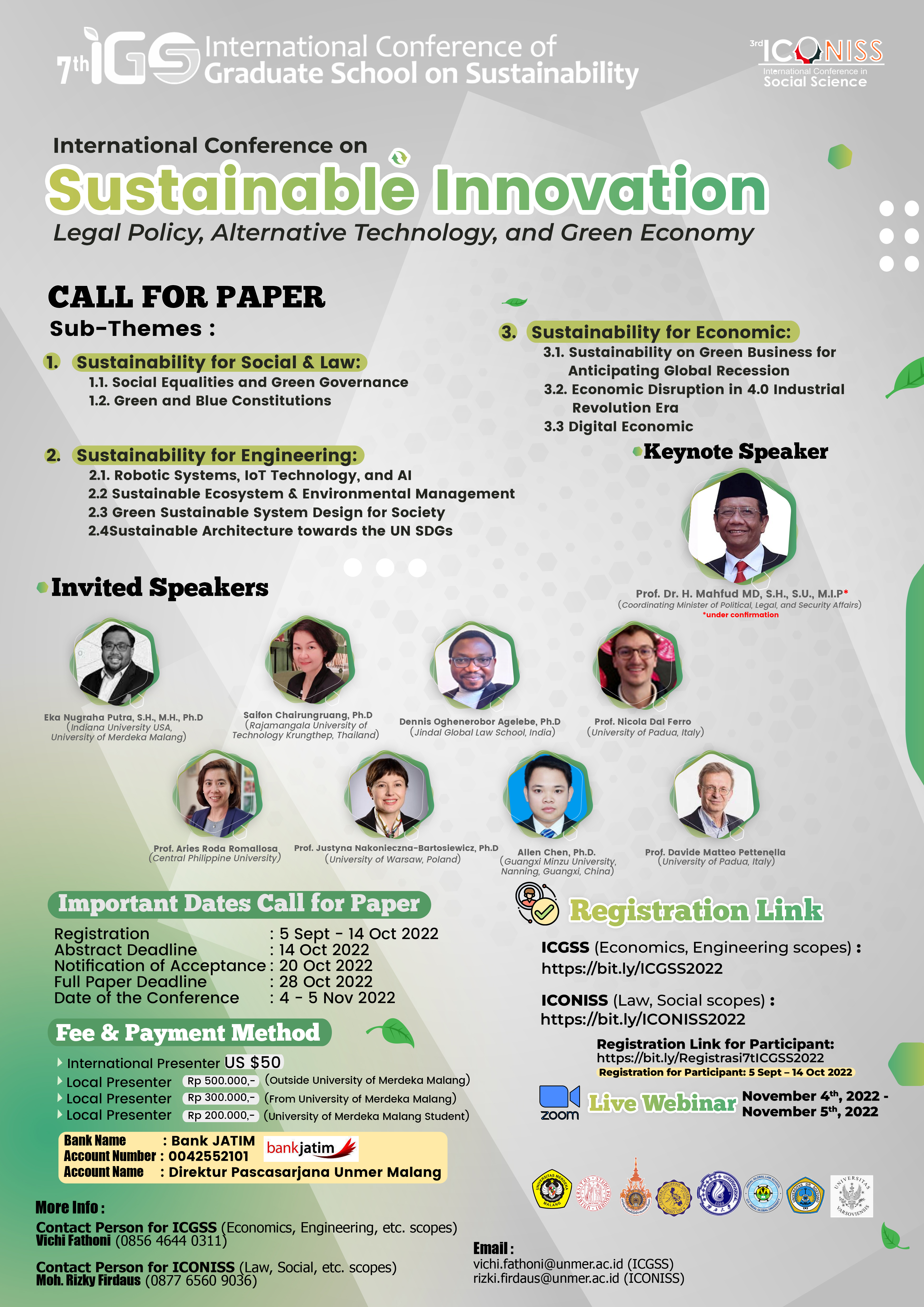
-
6th INTERNATIONAL CONFERENCE OF GRADUATE SCHOOL ON SUSTAINABILITY (ICGSS) 2021
November 5, 2021 – November 6, 2021 | | Conference Name | : INTERNATIONAL CONFERENCE OF GRADUATE SCHOOL ON SUSTAINABILITY (ICGSS) 2021 | | Initials | : ICGSS | | Frequency | : 1 issues every year | Print ISSN
| : - | Online ISSN
| : 2721-1398 | | Editor-in-Chief | : Dr. Dina Poerwoningsih, ST.,MT. (University of Merdeka Malang, Indonesia) | | Publisher | : Universitas Merdeka Malang | | Download Front matter Proceeding | : CLICK HERE! |
|
Conference Summary : | The international conference organized by the University of Merdeka Malang this time focused on sustainable innovations by encouraging an interdisciplinary approach from the perspectives of public policy, economics, law, and technology. Indeed,bringing together opposing viewpoints for a discussion or debate is not always easy. However, bringing diverse viewpoints together at an international conference is necessary to facilitate the interplay of thoughts and experiences in an atmosphere conducive to the interchange of the finest ideas and concepts. |
Keynote Speakers : | 1. Prof. Dr. Ir. Suprapto, DEA (Chairman of LLDIKTI 7, Indonesia) 2. Assoc. Prof. Kazi Sohag (Ural Federal University, Russia) 3. Prof. Dr. Syed HassanAlsagoff (Islamic Dev.Bank, Singapore) 4. Prof. Dr. Serkan Dilek (Kastamonu Universitesi, Turkey) 5. Prof. Dr. Takashi Yasuno (Tokhusima University, Japan) 6. Prof. Dr. Eko Prasojo (Universitas Indonesia, Ketua IAIP, Indonesia) 7. Prof. Dr. Normah Omar (UiTM, Malaysia) 8. Prof. Dr. Hannah Buxbaum (Indiana University, USA) 9. Prof. Dr. Grahita Chandrarin,M.Si., Ak.,CA (UNMER Malang,Awardee WCP 2021) |
|
|
Technical Support and Contact Person
Mr. Vichi Fathoni
[email protected]
085646440311
-
5th INTERNATIONAL CONFERENCE OF GRADUATE SCHOOL ON SUSTAINABILITY (ICGSS) 2020
November 5, 2020 – November 6, 2020 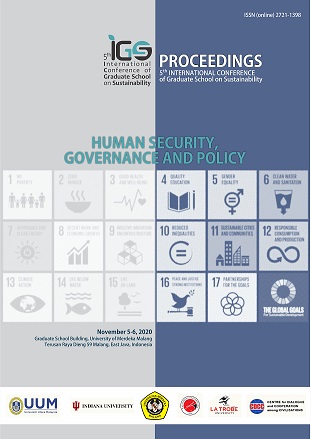
Download Full Paper Template CLICK HERE!!
Theme
Policy, Development, and Freedom: Freedom from Fear, Freedom from Want, and Freedom to Live in Dignity
For further details sub-themes, click here.
Technical Support and Contact Person
Mr. Vichi Fathoni
[email protected]
085646440311
-
4th INTERNATIONAL CONFERENCE OF GRADUATE SCHOOL ON SUSTAINABILITY (ICGSS) 2019
October 11, 2019 – October 12, 2019 | | Conference Name | : INTERNATIONAL CONFERENCE OF GRADUATE SCHOOL ON SUSTAINABILITY (ICGSS) 2019 | | Initials | : ICGSS | | Frequency | : 1 issues every year | Print ISSN
| : - | Online ISSN
| : 2721-1398 | | Editor-in-Chief | : Dr. Dina Poerwoningsih, ST.,MT. (University of Merdeka Malang, Indonesia) | | Publisher | : University of Merdeka Malang | | Download Full Proceeding | : CLICK HERE!!! |
|
Conference Summary :
| On behalf of the organizing committee, it is our sincere pleasure to officially present the proceedings, which is based on the 4th-International Conference of Graduate School on Sustainability (4th-ICGSS) with the tittle of “SUSTAINABILITY STUDIES IN THE INDUSTRY 4.0 AND SOCIETY 5.0 ERA“. Graduate School of University of Merdeka Malang as an educational institution takes a role in a small part in the academic field by conducting scientific discussions from scholars and practitioners in a conference forum. The exploration of sustainable development issues is still very open, especially at the regional level. These issues inspired Graduate Program, University of Merdeka Malang to develop research and teaching in sustainability topics. The conference is based on the belief that there are a large number of contemporary studies that are interdisciplinary and in the form of regional case studies in different countries. The conference also offers issues of the issue of industrial revolution 4.0 and society 5.0. These issues are initiated by the world's developed countries, especially Germany and Japan, which are facing their own country's socio-political challenges. Nevertheless the background that remains the same and applies universally is the influence of data technology advances such as big data and 'Internet of things'. The conference is intended to explore how Indonesia and other international audiences face these issues. We hope this proceedings as a collection of research articles will be useful to assist the Indonesian government in particular and other parties in the world in providing alternative solutions and challenges for sustainability in the future. |
Keynote Speakers : | Prof. Normah Omar (Universiti Teknologi Mara, Malaysia) File Presentation Prof. Nazief Nirwanto, MA. (University of Merdeka Malang, Indonesia) File Presentation 1 | File Presentation 2 Prof. Johnny Jermias, PhD., CMA. (Simon Fraser University, Canada) File Presentation |
Invited Speakers : | Prof. Jamaliah Said (Universiti Teknologi Mara, Malaysia) File Presentation Assistant Prof. Kathy Terdpaopong, Ph.D. (Rangsit University, Thailand) File Presentation Assoc. Prof . Jun Takamatsu, Ph.D. (Nara Institute of Science and Technology , Japan) File Presentation Kazi Sohag, Ph.D. (Ural Federal University of Russia, Russia) File Presentation |
-
3rd International Conference of Graduate School on Sustainability (ICGSS) 2018
January 22, 2019 – January 23, 2019 

_(1).png)
_(1)1.png)



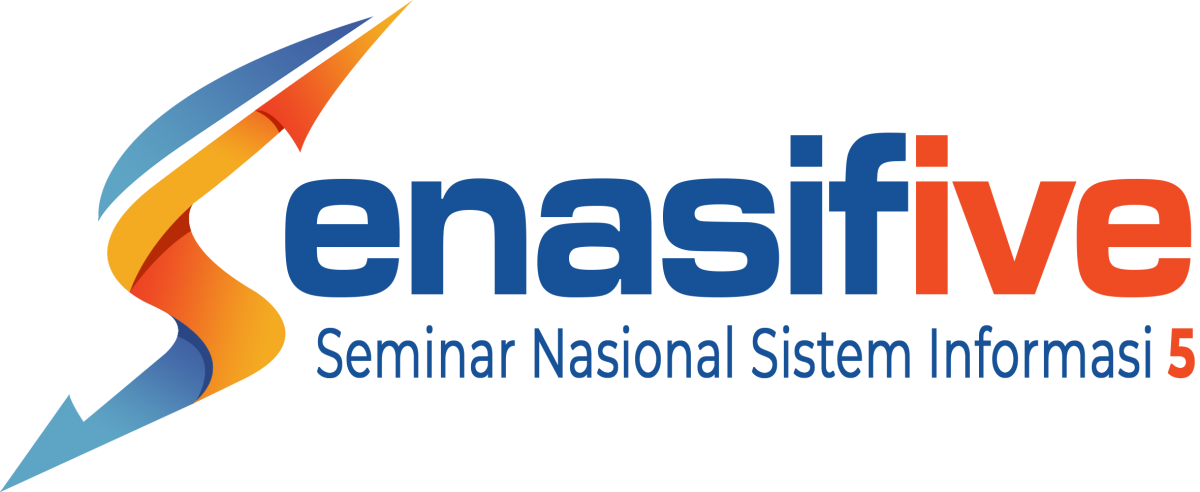

2.png)





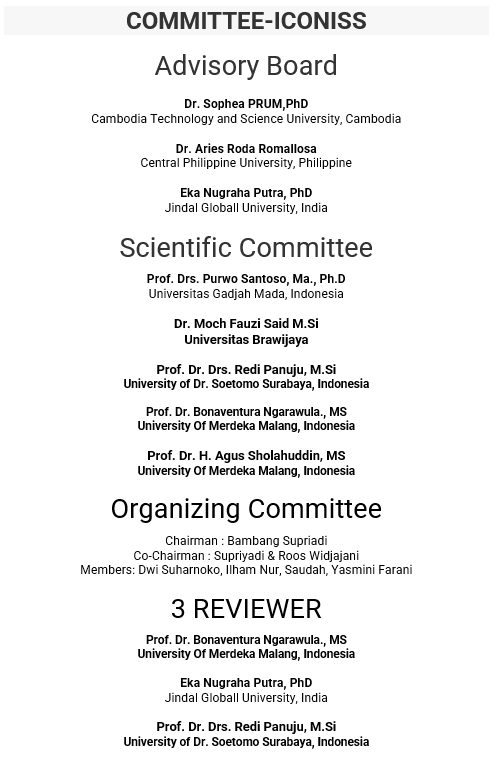
_.jpg)

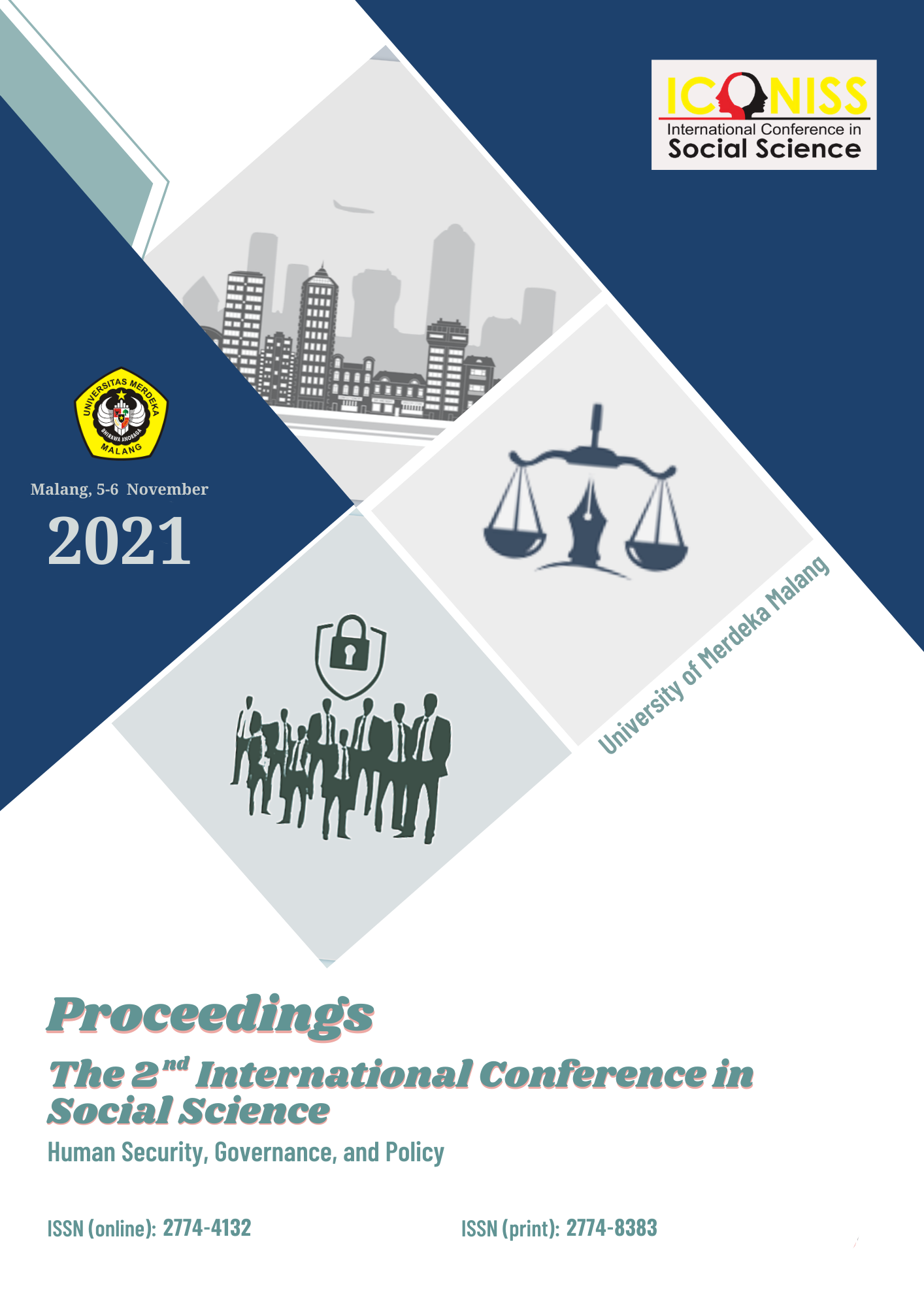

.png)

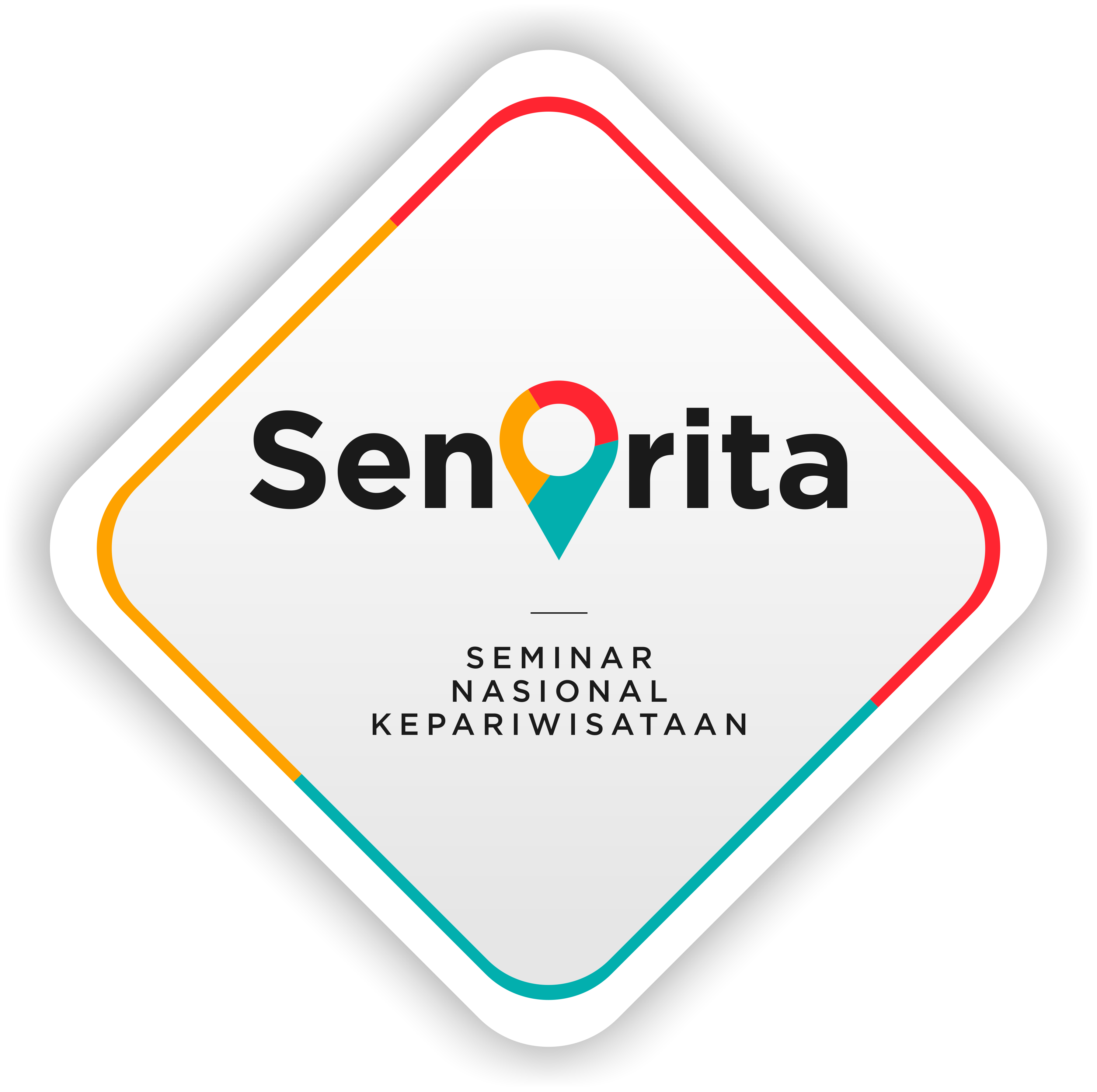
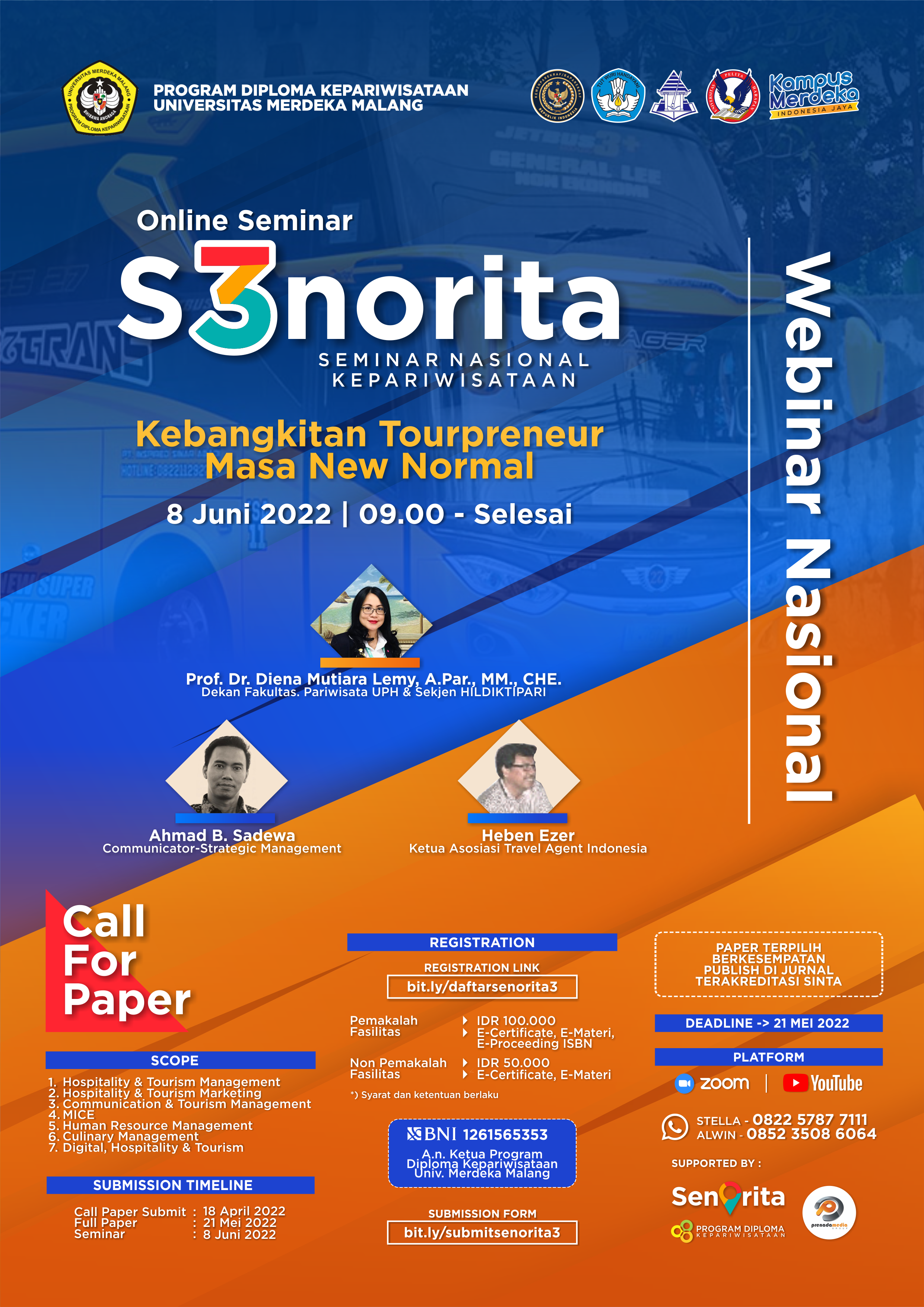







1.png)






